The Walther PP (Polizei Pistole) is well-known around the world and has been the source of inspiration for many copyists for many years; despite its age, it still sets the standard for the rest and sells as fast as Walther can make it.
Introduction
It is an elegant design, reliable and accurate, and it pioneered a double-action lock that has rarely been surpassed for smoothness of operation. In the mid-1970s, Walther decided to give it face-lift and a new caliber to keep up with the changing demands of police authorities in Europe; though not exactly new, this pistol is so little-known outside Germany that we feel it is worth bringing into sharper focus.
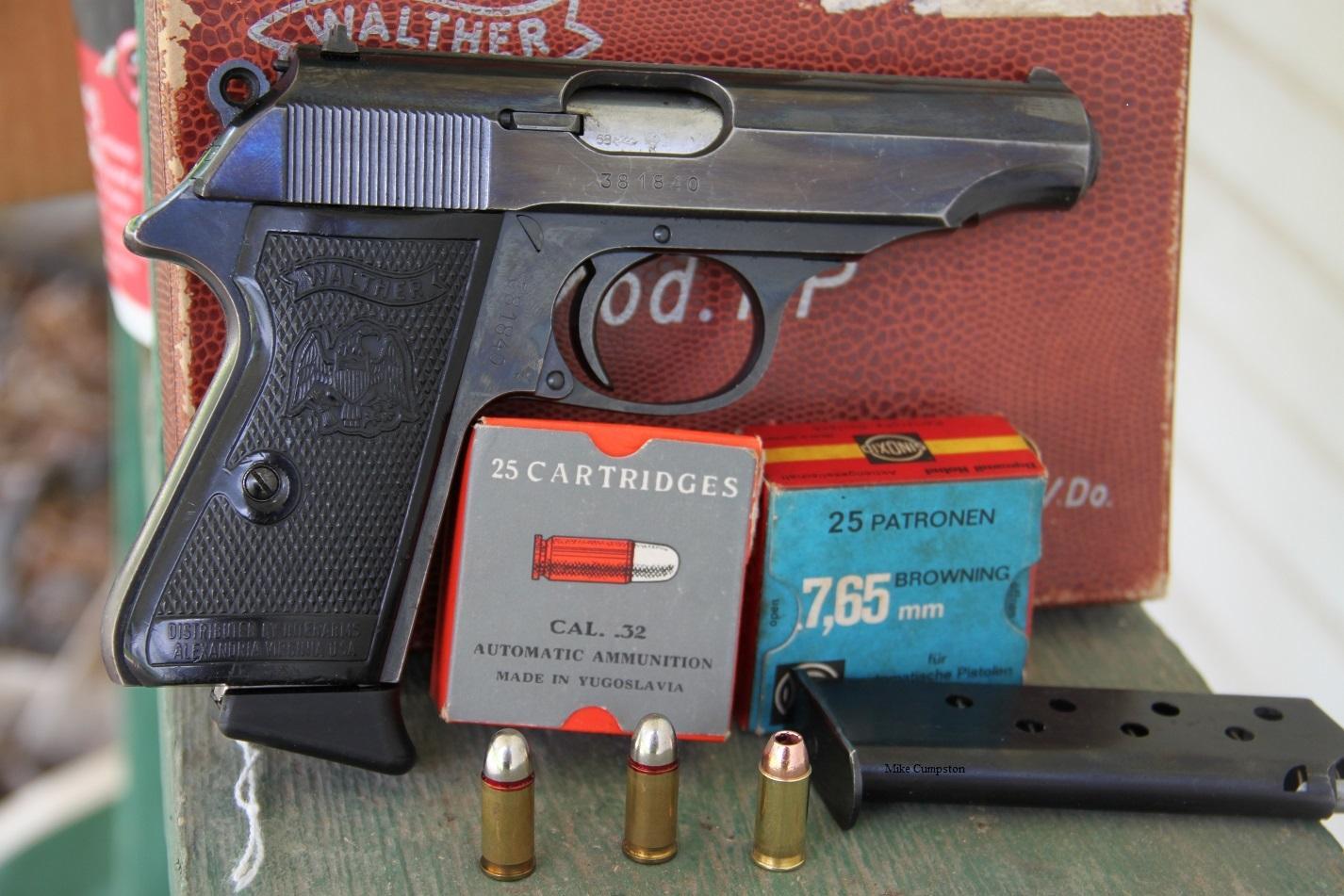
Design
The Walther PP Super uses the same basic mechanism as the older PP but has an entirely new frame and slide assembly and is chambered for the 9 mm Police (or 9 mm x 18 mm) cartridge, a round devised in Germany to obtain the maximum power from a blowback pistol, combined with good stopping power and a low risk of ricochet for use by police and special forces in urban areas.
The frame is slightly longer, the slide longer, and more squared-off at its front end. The grips are carefully molded to a hand-filling shape and provided with a thumb-rest; wooden grips of a similar contour can be had as an alternative. The trigger guard has been made slightly larger and with a vertical front edge to facilitate a pistol’s two-handed grip. The front sight blade has a night-aiming luminous spot in its rear face, while the rear sight is a square notch adjustable for windage and with a central luminous patch that can be aligned with the front spot in poor light.
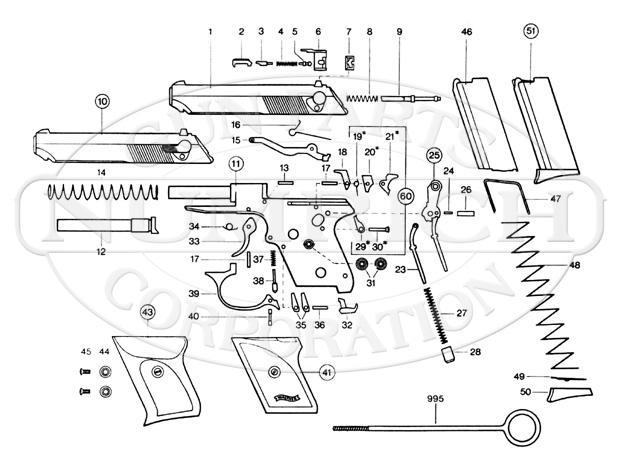
The most significant change has been in the safety arrangements. In the old Walther PP, the safety catch on the slide dropped the hammer, locked the firing pin, and locked the trigger. With the pistol loaded, pressing the safety, dropped the hammer, and left everything locked; to fire, it was necessary to push the safety up and then pull the trigger to double-action the hammer to cock and drop.
The safety locking function has been omitted; the safety catch is now only a decking lever. Once the pistol is loaded, this lever is pressed down; this rotates a block in front of a shoulder on the firing pin and releases the hammer. The firing pin is capable of vertical movement and is forced down in its housing by a spring so that its end is aligned with a recess on the face of the hammer. Thus when the hammer falls, the face strikes the slide’s rear while the recess surrounds the firing pin but does not touch it.
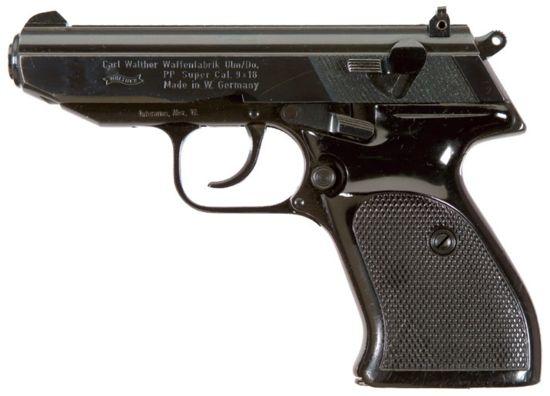
If the trigger is now pulled, the hammer begins to rise to the cocked position, while a linkage forces the firing pin upwards in its housing against the spring. This lifts it clear of the safety block and lines the end of the pin-up with the hammer’s solid face so that when the hammer falls, the pin goes forward to fire the cartridge. It is thus unnecessary to move the safety catch when firing in a hurry. This arrangement may sound somewhat unsafe, but it should be remembered that this is a weapon intended for use by police, special operations forces, and similar well-trained people so that some degree of short-cutting is acceptable.
Technical specifications: Walther PP Super
| Manufacturer: | Walther Arms GmbH, Sportwaffenfabrik, Ulm, Germany |
| Type: | blowback, double-action, semi-automatic pistol |
| Caliber: | 9 mm Police |
| Barrel: | 3.62 in (92 mm) |
| Weight (empty): | 30 oz (850 grams) |
| Magazine capacity: | 7 rounds |




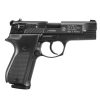
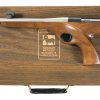
Question regarding the PP Super. I have one in stainless in period correct S/N marked case. I’ve found nothing on the net to indicate these were or were not made in Stainless. Can you tell me anything about it?
I’d like a thorough comparison between the 9×18 round and the common 9×19 round?
I have a war Era PP. the absolute best shooting pistol I own! Hard to believe it’s almost 100 years old.
What’s the price
If you have to ask – you can’t afford it !